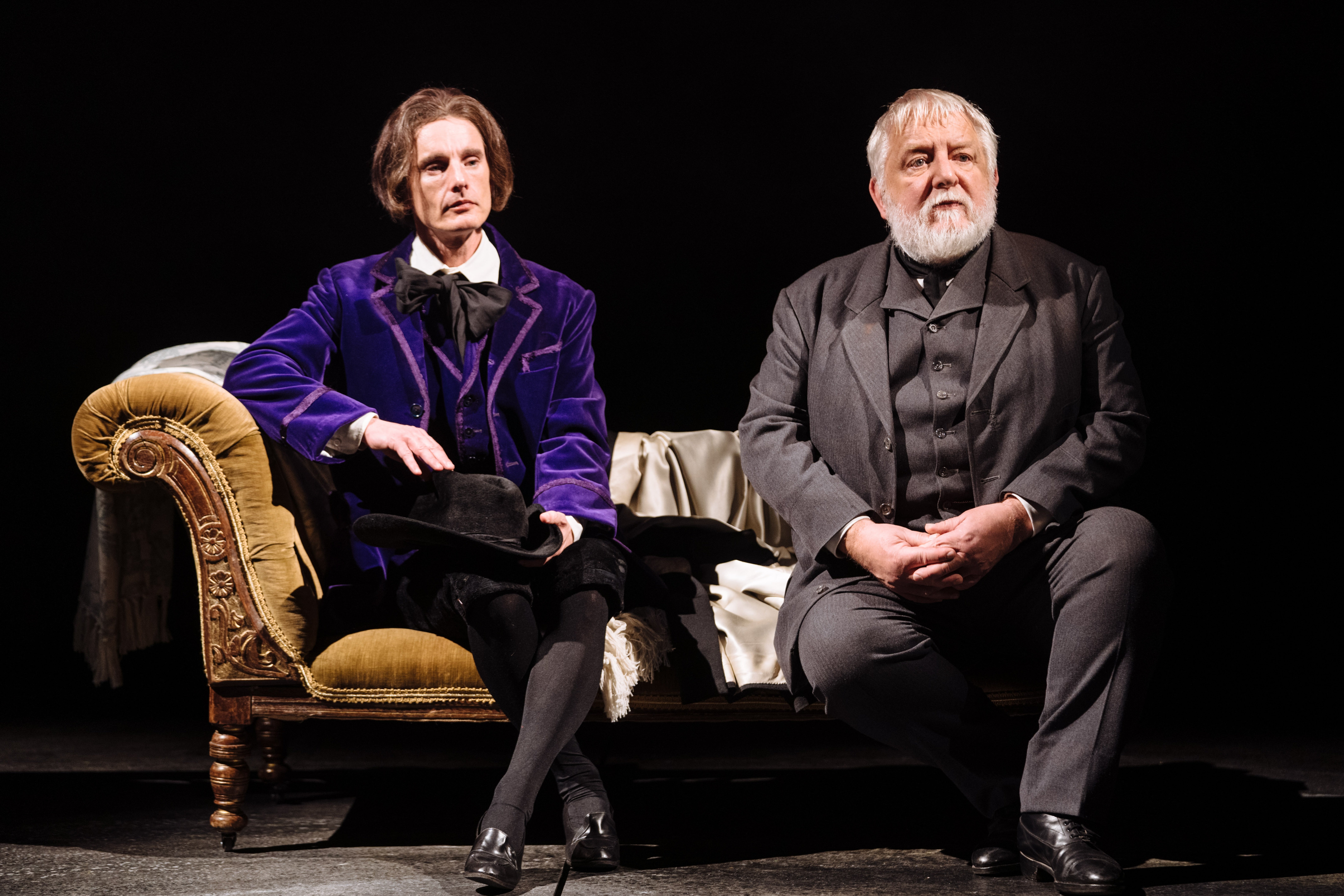The Invention of Love, Hampstead Theatre: Plotless, showily clever – and utterly wonderful
Blanche McIntyre’s production manages to make speeches about Latin manuscripts and grammar fun

While other theatres across London are pulling their pantos up on stage, Hampstead remains resolute in its ongoing mission to revive some of the lesser-known Tom Stoppard plays. No dames and innuendoes here. No, instead we get a three-hour dreamlike reflection on Latin love poetry, via the life of scholar and poet AE Housman. Starting with the death of Housman, met by the mythical ferryman on the shores of the river Styx, with a couple of puns about boating terminology, The Invention of Love spins out plotlessly from there. It cues up speech after speech, difficult to follow, showily clever, taking in aestheticism, manuscript transmission, Oxford in the late 19th century, the origins of the legislation that led to Oscar Wilde’s imprisonment, beastliness, buggery, and much, much, much more. Merry Christmas everyone.
But Blanche McIntyre’s subtle, uncluttered production – taking place on a mostly empty stage – puts all focus on the text (makes sense, given that is what the play is all about) and delivers a pretty good case for the play being, if sometimes impenetrable and partly in Latin and Greek, a bona fide masterpiece.
Although best known now as the author of A Shropshire Lad, Housman was also the greatest classical scholar of his generation and happened to be at Oxford at the same time as Oscar Wilde. Stoppard’s play teases these strands into reflections on what it means to lead a life well-lived, especially for gay men in the 19th century. Wilde lived fearlessly and unashamedly. Housman was the opposite. He was all repression and sublimation of his sexuality into a dedication to classics. On day one of university he falls in love with his sporty, ruddy-cheeked, very straight classmate Moses Jackson and loves him for the rest of his life. He never does anything about it, just quietly pines from afar forever. “I would have died for you but I never had the luck,” he repeats over and over.
Though nothing much happens in the play and it is hard to follow, it’s also weirdly fun to be swept along by speeches ad infinitum about Latin manuscripts – how it’s a miracle that any of them survived at all, at the mercy of monks and mice and moral puritanism for centuries.
And there are several very beautiful moments, not least Simon Russell Beale’s older, cynical Housman – slightly muttery, doddery, needing the loo – sitting next to his younger self, played both gently and intensely by Matthew Tennyson, and arguing the toss about life and love. Older Housman has become obsessed with the placement of commas and the meaning of individual words in poems. Younger Housman reminds him to see the wood for the trees, and to remember that the poems are actually about love. Tennyson stands and almost sings his lines, arms outstretched, showing wonderfully how even love for a subject as seemingly staid as Latin grammar can be enriching and infecting.
That’s where McIntyre really manages to blow a lot of the dust away. Though the production does drag a bit, becoming bogged down in the thickness of its words, when McIntyre homes in on what the play is about – love – it comes alive. There’s Housman’s love of Latin, with Tennyson and Russell Beale delivering long, impassioned, joyful speeches about it. And there’s Housman’s love of Moses Jackson, no less real for its being drenched in shame and the impossibility of its return. This is what the play is about: the invention of love – and the fact that it is reinvented every time it’s felt. Not to mention the fact you’ll feel about a thousand times cleverer after seeing it.
‘The Invention of Love’ is on at Hampstead Theatre, London until 1 February 2025; tickets and more information here



Join our commenting forum
Join thought-provoking conversations, follow other Independent readers and see their replies
Comments